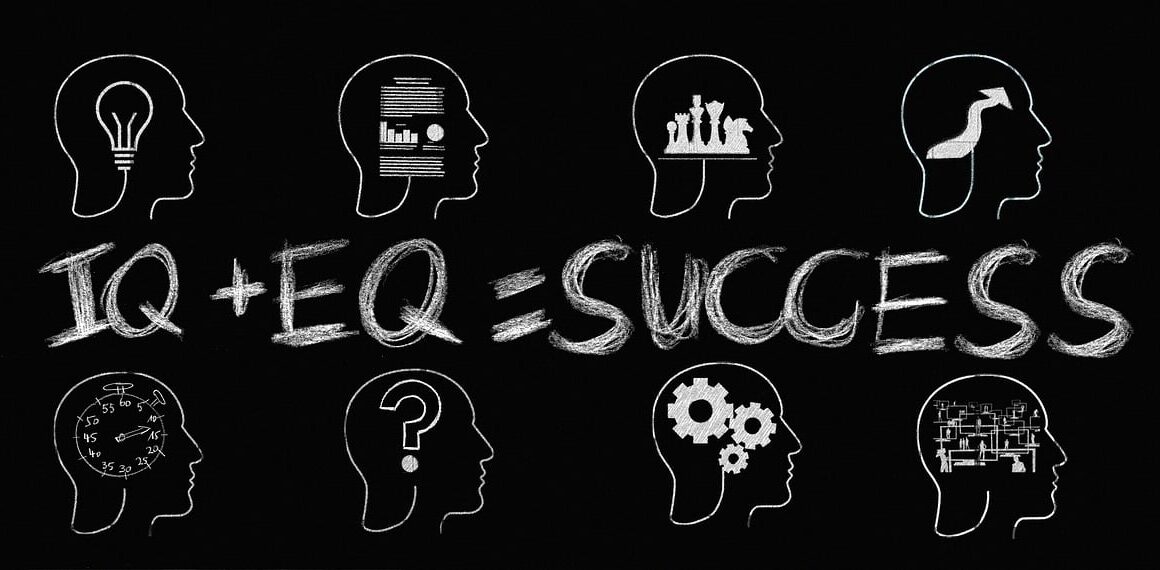Developing Motivation Through Emotional Awareness in Athletes
Understanding the connection between motivation and emotional intelligence is paramount for athletes seeking to enhance their performance. Emotional awareness allows athletes to recognize and manage their feelings effectively, which plays a crucial role in goal-setting and motivation. By developing emotional intelligence, athletes can better understand their emotional triggers, facilitating improved goal-oriented behavior. For instance, identifying feelings of anxiety before a competition can help athletes develop coping strategies. Consequently, they can focus more on their performance, reducing the likelihood of distractions. Emotional awareness also aids in building motivation, as athletes gain insight into what drives them to succeed. Having clarity on personal values and goals enhances commitment and perseverance. In addition, emotional intelligence fosters resilience. Athletes who can navigate their emotions constructively are more likely to bounce back from setbacks. Therefore, integrating emotional awareness into training routines can lead to improved mental conditioning, better focus, and enhanced motivation. As athletes learn to connect with their emotions, they find greater joy in their pursuits, which ultimately fuels a more enduring motivation to attain their dreams.
One practical approach to enhancing emotional awareness is through mindfulness practices. Mindfulness encourages athletes to engage in self-reflection, providing a structured way to observe their emotions during training and competition. By adopting techniques such as meditation or journaling, athletes can gain insights into their emotional states, identifying patterns that may influence their performance. Furthermore, mindfulness enables athletes to cultivate a non-judgmental attitude, allowing them to experience emotions without being overwhelmed. This enables a greater sense of control during high-pressure situations. By practicing mindfulness, athletes learn to acknowledge emotions like fear or frustration without letting them dictate their actions. This conscious awareness fosters an environment where positive emotions, such as joy, can thrive and enhance motivation. Ultimately, the regular practice of mindfulness reinforces the connection between emotional awareness and successful goal attainment. As athletes become attuned to their emotional landscape, they become more adept at harnessing these feelings to propel their performance rather than hinder it. Integrating mindfulness into an athlete’s training can significantly contribute to developing motivation through emotional intelligence.
Furthermore, goal-setting plays an integral part in leveraging emotional awareness for motivation. Goal-setting provides direction and purpose, essential for fostering motivation in athletes. Research suggests that athletes who set clear, specific goals are more likely to maintain focus and commitment throughout their training. Emotional intelligence can enhance this process by helping athletes recognize their intrinsic and extrinsic motivations. Identifying what truly drives them enables athletes to set personal goals aligned with theirvalues. By ensuring these goals are challenging yet attainable, athletes can build a sense of accomplishment as they progress. Additionally, emotional awareness serves to refine these goals, allowing for adjustments based on feelings of frustration or excitement experienced during training. Regularly revisiting and modifying goals helps sustain motivation by ensuring they remain meaningful. Success in achieving milestones reinforces the athlete’s commitment to future goals, creating a positive feedback loop. This dynamic interplay between emotional awareness and goal-setting fosters a robust motivational climate. Consequently, it is vital for coaches to encourage athletes to explore their emotional landscape while cultivating their goal-setting practices.
Moreover, effective communication plays a significant role in connecting emotional intelligence and motivation. Open communication between coaches and athletes facilitates a deeper understanding of emotional states and motivational drivers. Coaches who actively listen and validate their athletes’ feelings create a supportive environment, enhancing emotional awareness. This not only increases athletes’ comfort levels but also fosters a sense of trust and belonging. When athletes feel secure expressing their fears and frustrations, they can receive constructive feedback, which is essential for growth. Encouraging dialogue around emotions empowers athletes to explore their motivations further. Workshops and team meetings focusing on emotional awareness can enhance collective motivation by cultivating team cohesion. Athletes learn to appreciate the diverse emotional experiences within their group, ultimately enhancing empathy and understanding. As athletes see their peers navigate similar challenges, they become more motivated to confront their own emotional hurdles. This creates a culture of shared responsibility and mutual support. As a result, enhanced communication strategies are essential for developing an emotionally intelligent atmosphere that drives motivation to excel.
Additionally, constructive feedback is essential in building emotional intelligence and motivation among athletes. Coaches who provide timely and specific feedback enable athletes to reflect on their performance emotionally. When athletes understand how their emotional states influence their actions, they can identify areas for improvement. This reflection fosters resilience and creates opportunities for growth. Feedback should be framed positively, focusing on strengths while pinpointing areas needing development. For example, acknowledging the hard work an athlete puts into their performance, while suggesting adjustments, fosters a growth mindset. This approach builds confidence and strength in their emotional capacity. Moreover, integrating peer feedback mechanisms into training enhances emotional awareness, as athletes learn from each other. Creating a culture that values constructive criticism helps athletes feel motivated to pursue their goals without fear of judgment. This collaborative environment nurtures emotional intelligence, as athletes learn to navigate both giving and receiving feedback effectively. Ultimately, a well-structured feedback system plays a pivotal role in enhancing motivation through emotional understanding.
In conclusion, developing motivation through emotional awareness is essential for athletes striving for success. The interplay between emotional intelligence, mindfulness, effective communication, and goal-setting creates a comprehensive framework for achievement. As athletes embrace their emotions, they become better equipped to handle challenges and setbacks. This transformation enhances their overall motivation, resilience, and performance. Coaches and athletes alike must recognize the pivotal role that emotional intelligence plays in fostering a motivated sporting environment. By prioritizing emotional awareness and its impact on motivation, athletes can navigate the complexities of competition, leading to sustained improvement. Future training programs should entail emotional and psychological training, ensuring athletes are equipped with the tools to conquer both mental and physical challenges. Furthermore, establishing partnerships with sports psychologists can bolster emotional conditioning, creating a richer support network for athletes. The holistic development of an athlete hinges on understanding emotions and their influence on motivation. As the sports world continues to evolve, integrating emotional intelligence into training methodologies will remain a cornerstone for future successes.
Finally, embracing emotional intelligence ensures that athletes can motivate themselves not just through external achievements but also internal satisfaction. Athletes can cultivate a genuine love for their sport by analyzing their emotions. Developing this intrinsic motivation is crucial for longevity in athletics. As athletes journey through their careers, they must find meaningful connections to their training and performance to avoid burnout. Coaches and trainers must emphasize the importance of emotion-driven motivation, as external validations may not always be present. This emphasizes the need for self-efficacy, where athletes learn to encourage themselves through challenges. To achieve this, sharing personal experiences related to emotional journeys can inspire fellow athletes, facilitating a culture of shared vulnerability. Such an environment strengthens emotional bonds and fosters love for the sport among teammates. It enables athletes to realize that everyone’s struggles and successes are part of a shared journey. In a competitive landscape, focusing on emotional intelligence will yield lasting results. Ultimately, merging emotional awareness with motivation lays the groundwork for athletes to flourish in their pursuits.


